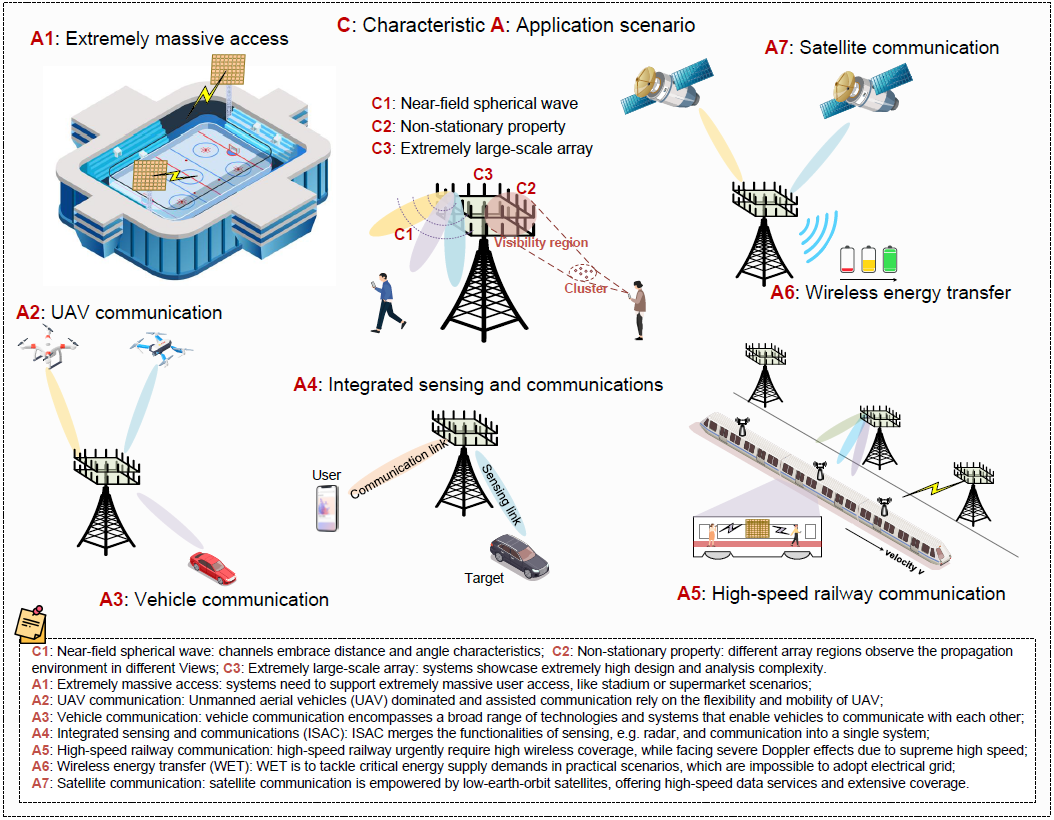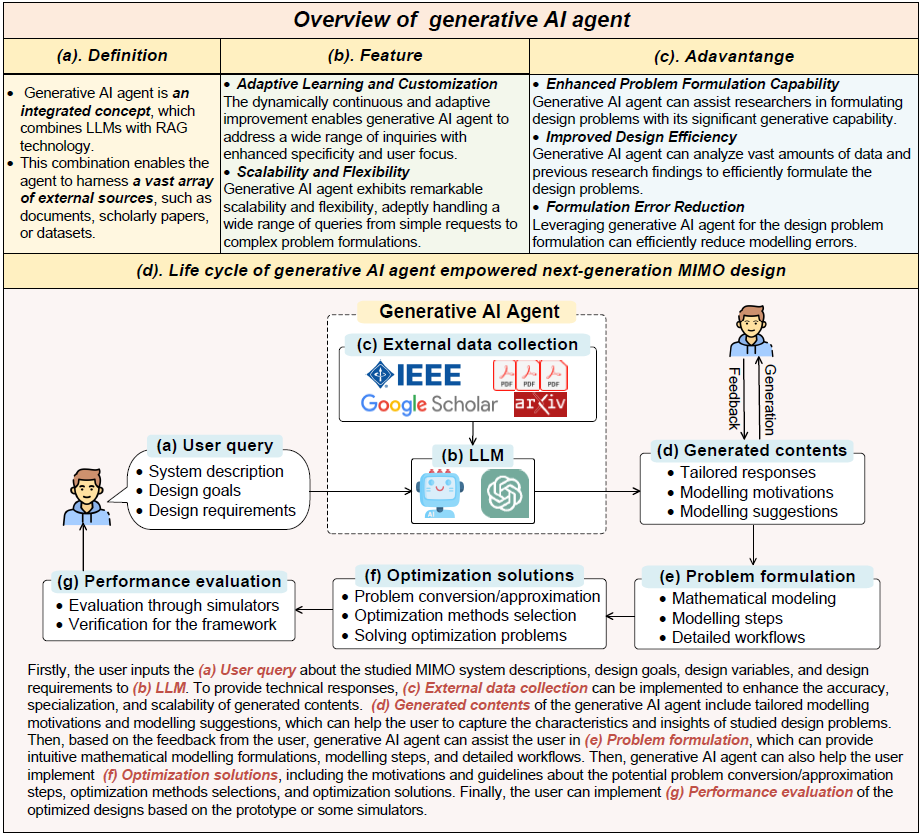In this part, we representatively provide tutorials for case studies in this paper. For XL-MIMO hardware design, we study UPA-based XL-MIMO with point antennas in case studies.
🔧 Install Required Packages
Install the necessary packages one by one using pip:
pip install langchain
pip install openai
pip install tiktoken
pip install chromadb
pip show langchain
⚡ Setting Up LangChain with Database based on RAG
Set up LangChain based on this repository. The database is established by merging research papers about the performance analysis of XL-MIMO:
[1] Z. Wang, J. Zhang, W. Yi, H. Du, D. Niyato, B. Ai, and D. W. K. Ng, "Analytical framework for effective degrees of freedom in near-field XL-MIMO," arXiv:2401.15280, 2024.
[2] Z. Xie, Y. Liu, J. Xu, X. Wu, and A. Nallanathan, "Performance analysis for near-field MIMO: Discrete and continuous aperture antennas," arXiv:2304.06141, 2023.
[3] S. S. A. Yuan, Z. He, X. Chen, C. Huang, and W. E. I. Sha, "Electromagnetic effective degree of freedom of an MIMO system in free space," IEEE Antennas Wireless Propagat. Lett., vol. 21, no. 3, pp. 446–450, Mar. 2022.
🔍 Case Study 1: Capacity Maximization for Non-Parallel Transceiver
We formulate the capacity maximization problem for non-parallel transceiver over the dyadic Green's function based channel. The interactive assistance from the generative AI agent can be implemented (an exmaple):
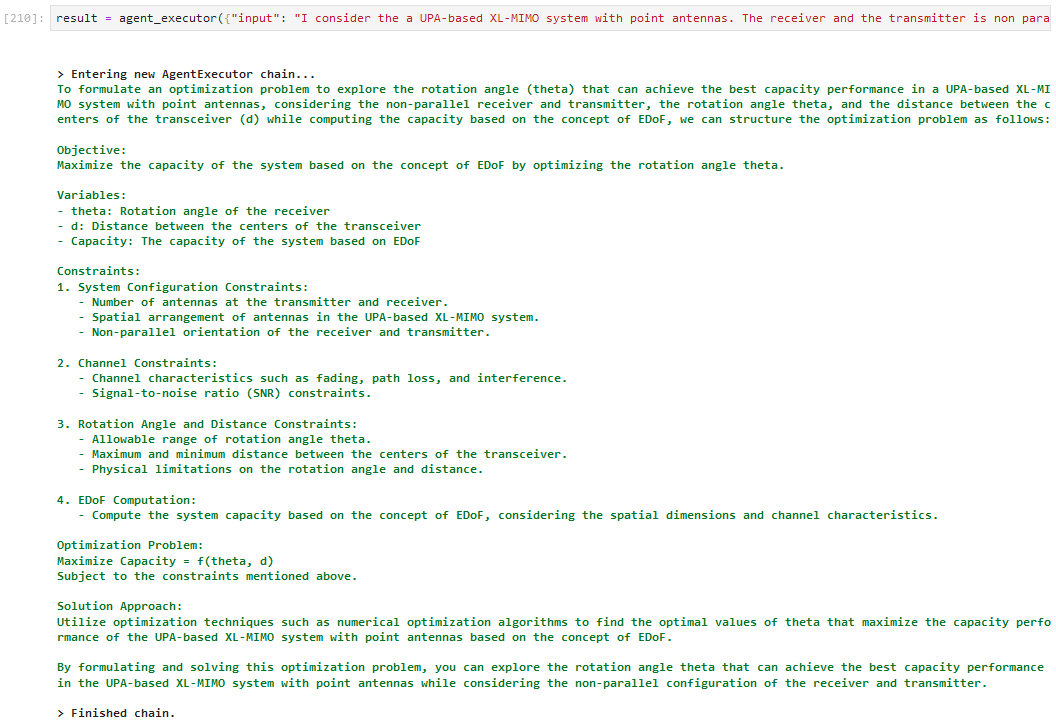
With the assistance of the generative AI agent, we can study the capacity maximization problem for non-parallel transceiver. We use Matlab to implement performance evaluation. We consider one square transmitting UPA surface and one square receiving UPA surface with similar physical sizes $10\lambda \times 10\lambda$. The transmitting distances between the center point of the transmitter and the center point of the transmitter for (a) and (b) are $30\lambda$ and $4\lambda$, respectively. And the signal-to-noise ratio (SNR) $P/N_0=10$.
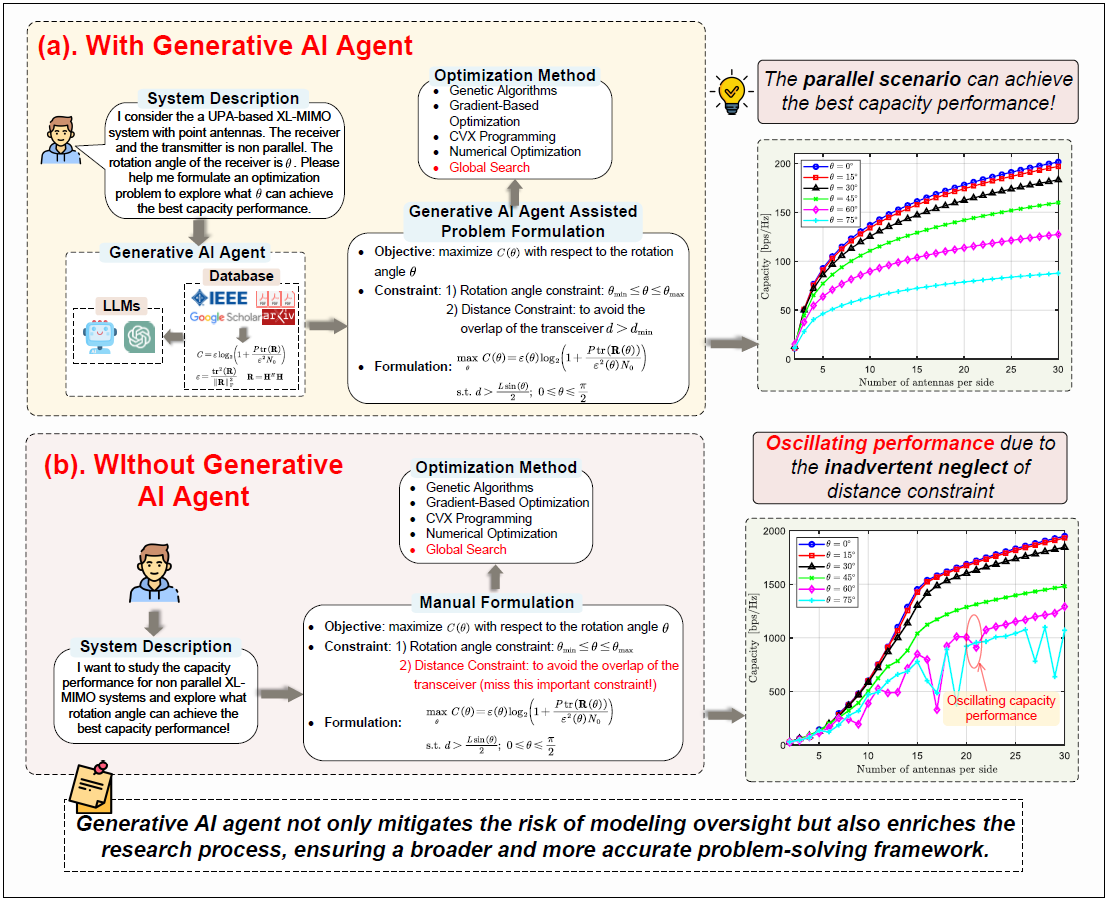
🔍 Case Study 2: EDoF Maximization for Various Shapes of Transceiver
We then study the EDoF maximization problem for various shapes of transceiver. The interactive assistance from the generative AI agent can be implemented (an example):
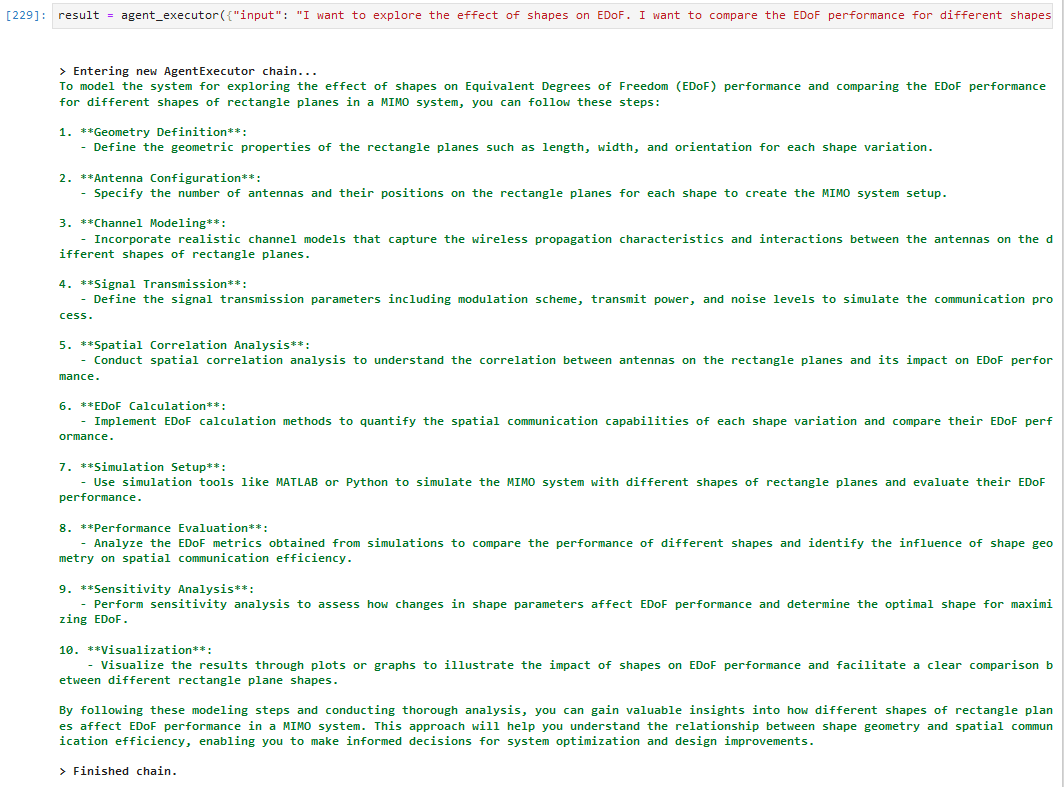
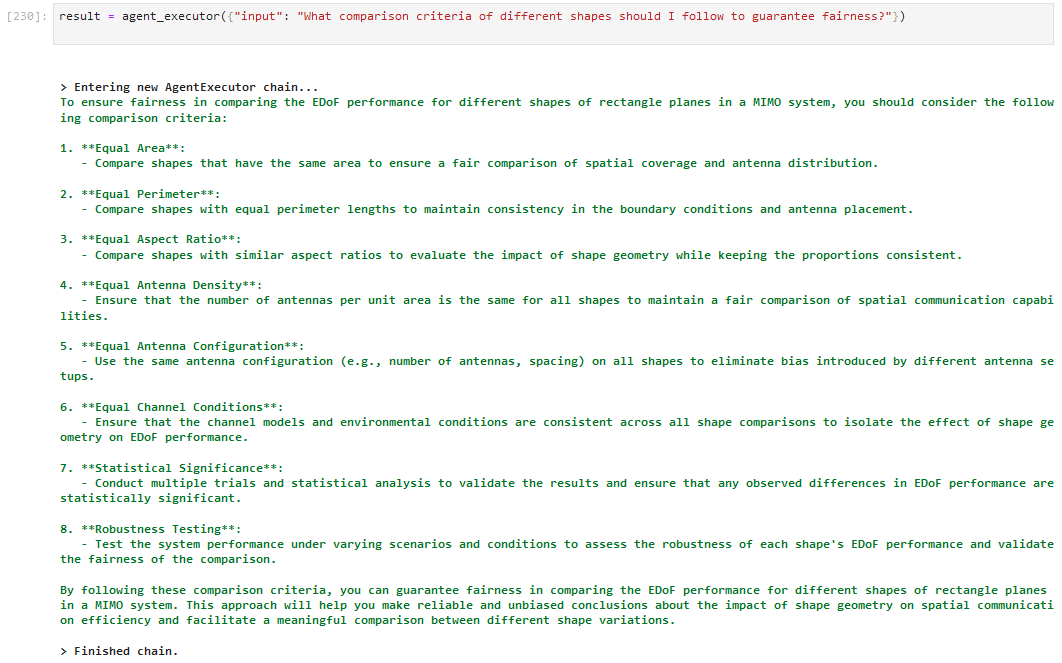

We can efficiently formulate the EDoF maximization problem for various shapes of transceiver with the assistance of the generative AI agent. We apply Matlab to implement simulation evaluation. We have $L=12\lambda$ and transmitting distance $d=10\lambda$.
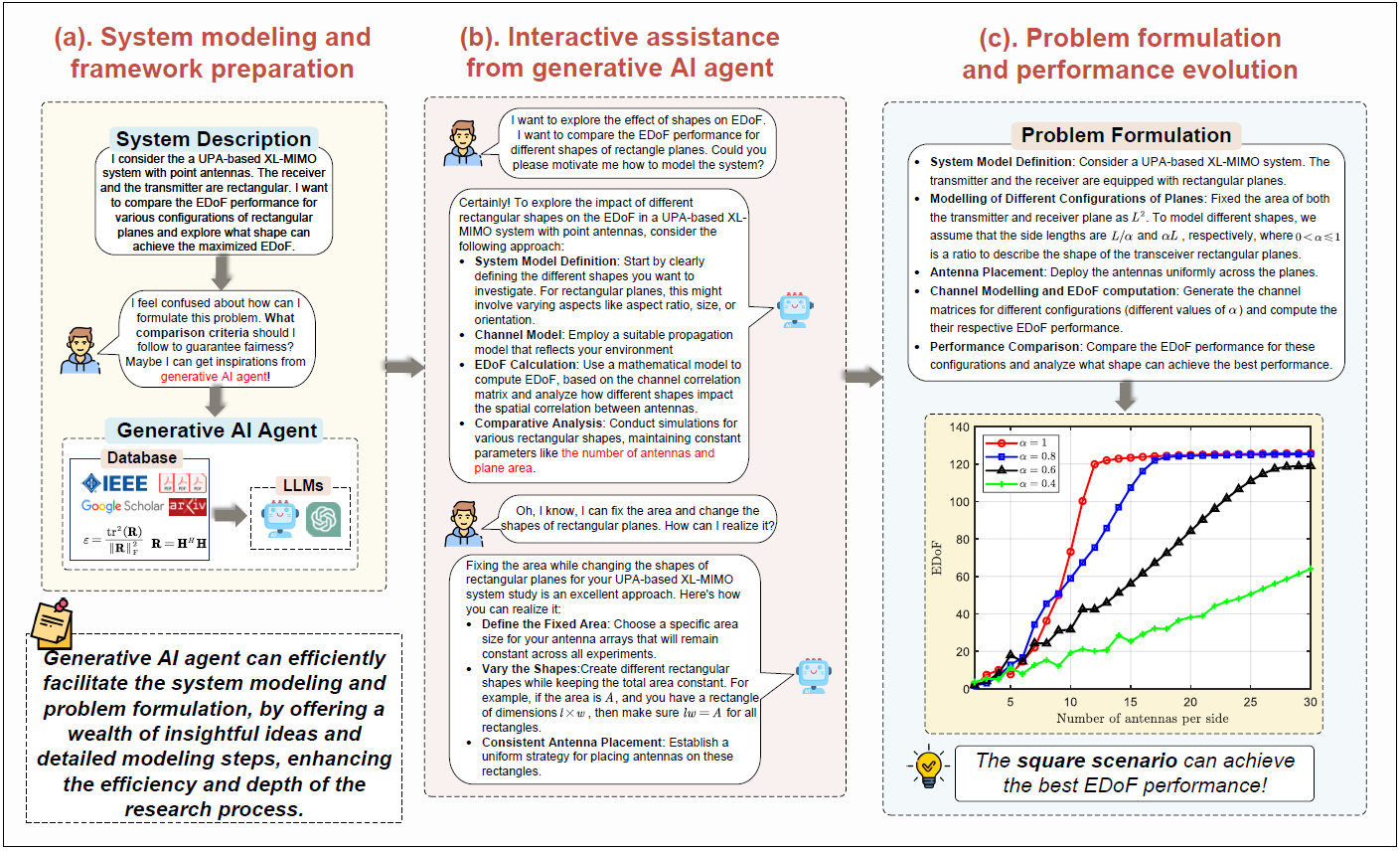
📚 Cite Our Work
If our code aids your research, please cite our work:
@article{wang2024generative,
title={Generative AI Agent for Next-Generation MIMO Design: Fundamentals, Challenges, and Vision},
author={Zhe Wang, Jiayi Zhang, Hongyang Du, Ruichen Zhang, Dusit Niyato, Bo Ai, and Khaled B. Letaief},
journal={arXiv preprint arXiv:2404.08878},
year={2024},
month = {Apr.}
}
